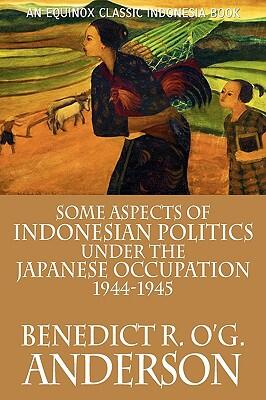
Some Aspects of Indonesian Politics Under the Japanese Occupation: 1944-1945
Ancora nessuna valutazione
History
Manga
Formato
Brossura
Pagine
156
Lingua
Inglese
Pubblicato
Aug 3, 2009
Editore
Equinox Publishing
ISBN-10
6028397296
ISBN-13
9786028397292
Descrizione
Benedict R. O'G. Anderson delves into a pivotal moment in Indonesian history, exploring the complex dynamics of political life during the Japanese occupation from 1944 to 1945. This period was marked by significant upheaval and transformation, as Indonesia found itself caught between colonial legacies and the desires for independence. Anderson meticulously examines how the Japanese occupation reshaped local political structures and influenced the aspirations of Indonesian nationalists.
His analysis reveals the intricate relationships formed among various political factions, detailing how the Japanese, despite their oppressive regime, inadvertently fostered a sense of national identity and self-determination among Indonesians. Through careful historical research, Anderson underscores the resilience of the Indonesian people as they navigated an uncertain political landscape while strategizing for post-war independence.
Furthermore, the work sheds light on the ideological shifts that occurred in this transformative era. It illustrates how the influx of new ideas and governance models generated a fertile ground for political activism, challenging traditional hierarchies and promoting a collective national consciousness.
In exploring these themes, Anderson not only documents a crucial chapter in Indonesian history but also provides broader insights into the interplay between colonial power, resistance, and the quest for self-governance, offering readers a deeper understanding of Indonesia's path to independence.
His analysis reveals the intricate relationships formed among various political factions, detailing how the Japanese, despite their oppressive regime, inadvertently fostered a sense of national identity and self-determination among Indonesians. Through careful historical research, Anderson underscores the resilience of the Indonesian people as they navigated an uncertain political landscape while strategizing for post-war independence.
Furthermore, the work sheds light on the ideological shifts that occurred in this transformative era. It illustrates how the influx of new ideas and governance models generated a fertile ground for political activism, challenging traditional hierarchies and promoting a collective national consciousness.
In exploring these themes, Anderson not only documents a crucial chapter in Indonesian history but also provides broader insights into the interplay between colonial power, resistance, and the quest for self-governance, offering readers a deeper understanding of Indonesia's path to independence.
Recensioni
Nessuna recensione ancora
Sii il primo a recensire questo libro e condividi i tuoi pensieri
Aggiungi Prima RecensioneRegistro di Lettura
Nessun registro di lettura trovato
Inizia a tracciare i tuoi progressi di lettura per vedere i registri qui
Aggiungi il tuo primo registro di letturaNote
Registro delle transazioni
Nessun registro delle transazioni trovato
Inizia a tracciare le tue transazioni di libri per vedere i registri qui
Aggiungi il tuo primo registro di transazione